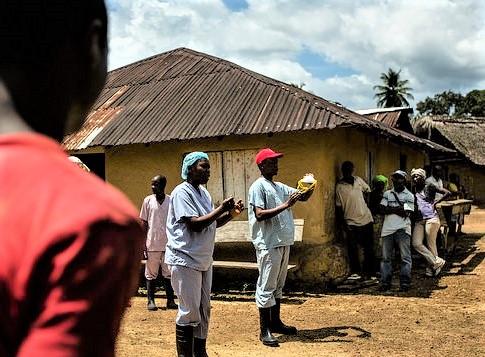The Democratic Republic of the Congo (DRC) announced 11 new suspected cases of Ebola over the weekend in Bikoro and Iboko, the remote health zones where the current outbreak began in the middle of May, but the outbreak total has not risen.
The case count now stands at 64 cases (38 confirmed, 14 probable, and 12 suspected). The total is actually 2 cases lower than the DRC's previous count of 66 because officials have ruled out several cases previously listed as suspected.
The death toll remains at 28, with no new deaths from the hemorrhagic virus reported in more than 1 week. As reported last week, the DRC confirmed that 24 people have recovered fully from their Ebola infections.
The ministry of health also said that 11 previously suspected cases tested negative for the virus.
Since May 21, a total of 3,017 people have been vaccinated using Merck's unlicensed VSV-EBOV vaccine, including 829 in Mbandaka, 726 in Bikoro, 1,374 in Iboko, 77 in Ingende and 11 in Kinshasa.
Experts call response 'swift'
In related news, two experts with the Africa Centres for Disease Control and Prevention, Writing in The Lancet, weighed in on the outbreak response, applauding the DRC for acting quickly and for using VSV-EBOV in a ring program that targets contacts.
"The response to the current outbreak in DRC has been rapid at the national, continental, and international levels. The DRC Health Minister, Oly Ilunga Kalenga, has led his country's response with pragmatism and expediency, both in Kinshasa and at the provincial levels, by developing a comprehensive response plan and establishing appropriate technical committees and mobilising the requisite political, financial, and technical support," the authors write.
Despite these efforts, the outbreak could be expected to last for several more weeks, the scientists said, because of the remoteness of Bikoro and Iboko. Material support is still needed as officials on the ground try to move medical materials within the far reaches of the DRC.
"There have been huge logistical challenges with airlifting supplies and health-care workers from Kinshasa to Mbandaka, Iboko, and Bikoro, because no commercial flights exist from Kinshasa to Mbandaka and motorable roads from Mbandaka to the other affected areas are non-existent," the authors write.
The outbreak is the DRC's ninth since 1976.
See also:
Jun 16 DRC update
Jun 16 Lancet commentary

















